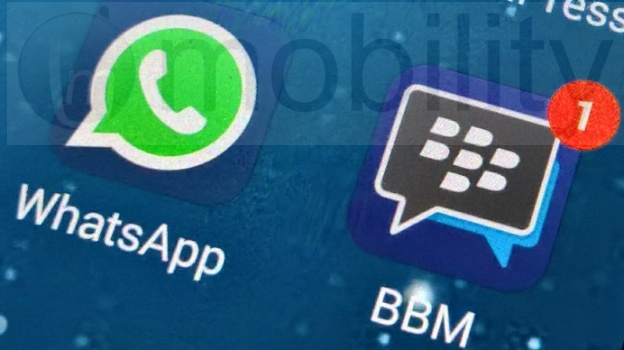The world has come a long way with instant messaging apps. From the days of Yahoo Messenger (1998) to the emergence of more modern counterparts like Skype (2003), BBM (2005), Facebook Messenger (2008), WhatsApp (2009), and Telegram (2013). We have seen former top dogs lose market share and new players ascend to the top of the hill. Product managers, business founders and managers can pick one or two lessons from the story of BBM. Come along with me as I share some.

More Is Not Better, Necessarily
Though it started as a simple PIN-to-PIN, text-only app, BBM has added tons of features over the years. In addition to chats, photos, status updates and channels, you can now also buy movie tickets, transfer money, make payments, buy airtime, read news, conduct secure video meetings, and do a whole lot of other things on BBM.
Yet BBM has not gained half the user numbers that WhatsApp and Telegram have. As a matter of fact, there is no other big name instant messaging app today that has as much features as BBM does, yet it is the smallest of the lot in terms of numbers. More is not always better.
Smooth Is Better Than Sluggish
Let’s talk about BBM for Android. I have no experience with the iOS app, and so cannot speak about it. But BBM for Android is a hog. It has a negative impact on the performance of your Android smartphone. Yes; installing this one app on your phone means the phone slows down and feels sluggish in a short while.
A few hours ago, I needed to have a look at the new features on BBM, an app that I stopped using some years ago. Yes; I stopped using it because of the negative hit on my phone’s performance. So, I downloaded the app and logged in and began t explore it. In a few minutes, my LG G6 began to feel like somebody took out 3GB out of the 4GB RAM.
Once I was done exploring, I quickly deleted the BBM app and lived happily ever after.
The original iPhone was a feature phone, not a smartphone. It was dumber than smartphones from Nokia and Samsung an Motorola at the time. It had no app store, no 3G, no copy-and-paste, among other features. But it was smooth. It felt good to tap and slide and have the phone respond without a stutter. Guess what: people flocked to it.
No-one wants to use a product – hardware or software – that frustrates.
Closed Versus Cross-platform
Now, this one is tricky. There are those who argue that open is always better than closed and that a fundamental mistake that BlackBerry made with BBM was that it was originally a closed platform that was available only to BlackBerry smartphone users for years.
Research In Motion (former name of Blackberry) took a lot of hit for that. Here is the thing: Apple has pulled off the exact same thing off with a closed system. FaceTime is available only to Apple users and hasn’t suffered for it. So, it isn’t a universal rule that open is better than closed. There are conditions under which a closed platform can thrive.
One thing is clear though: it is difficult to win with a closed platform when you do not have a significant market share in the hardware space. Blackberry once had that advantage and so BBM thrived alone. But the onslaught of Android OS changed things and that advantage was lost. Eventually, in 2013, BlackBerry moved to make BBM cross-platform.
BlackBerry OS is dead today. If BBM had stayed locked into BlackBerry OS, it would be dead today too. Also, though BlackBerry OS is dead, BlackBerry is still making smartphones, again because they switched to Android OS. Know when to implement what. Know when to switch strategy. You don’t have to die because your original idea died.
Persistence And Other Lessons
This is perhaps the most important lesson. Left to many people in the smartphone world, BlackBerry Messenger should not even exist anymore. They loathe it. They prefer to blot it out of their circles. But guess what, BBM still exists and keeps making progress. Sure; it does not grow at the pace that WhatsApp or Telegram does, but it is growing and making money.
What are the lessons: be persistent at what you do. Sometimes, persistence wins. Good old grit. Not paying attention to naysayers, no matter how valid their criticisms (a lot of the criticism against BBM are valid). Do what you can. Evolve at your pace. Find your niche markets and slay there. Find needs you can meet. Done is better than perfect.
Also, you can be successful even when you are not the top dog. BBM does not have WhatsApp and Telegram’s user numbers, but it is a successful app all the same. BlackBerry Messenger (BBM) lives on as a cross-platform messaging app despite the odds stacked against it. It has almost zero visibility in some parts of the world but is loved and used in many key emerging markets. And it generates income.
There is no shortage of critics. What is key is that we learn and execute. The story of BBM is a bundle of lessons from both its good, bad and ugly. Take whichever applies to your situation and execute. All the best!